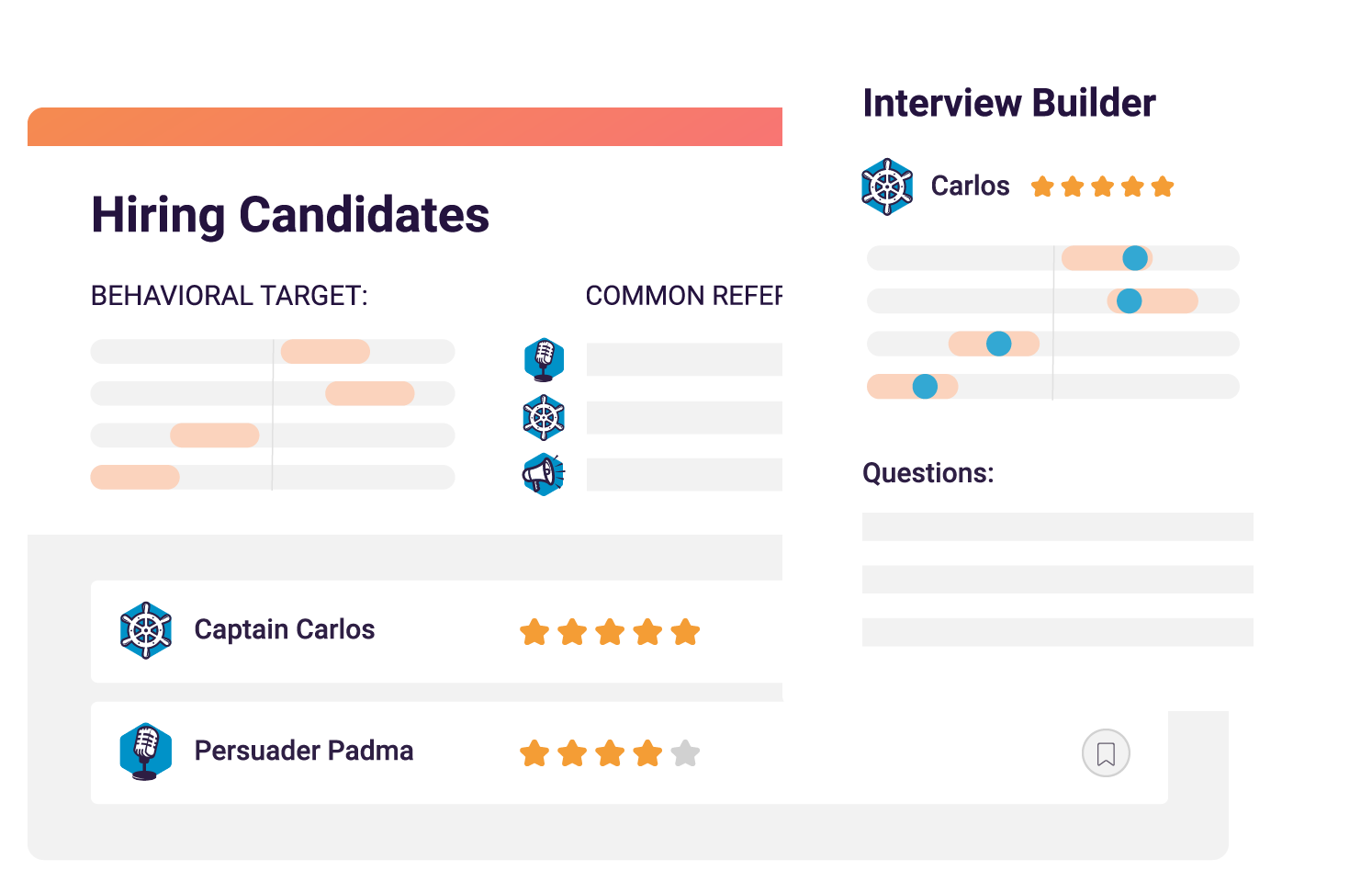Building trust at work is a cornerstone of employee engagement and talent optimization. Without a foundation of trust, communication and collaboration between teams, managers, and senior leaders will fall flat. And this puts a huge dent in organizational performance.
Read on to learn:
- 3 ways managers can build trust at work
- 4 ways senior leaders can build trust at work
- The relationship between trust and engagement
Let’s dive in.

3 ways managers can build trust at work
The 2019 People Management Report found that employees with a high level of psychological safety are less likely to leave. Trust is the underpinning of psychological safety—and managers play a critical role in creating it.
Here three tips managers can use to establish trust:
1. Commit to personal and professional development.
A study by West Monroe found that the majority of American managers don’t receive any training. If your organization doesn’t offer management workshops, seek out additional education to become more well-versed as a manager. Skills like time management, delegation, and giving feedback are essential.
2. Don’t let feedback become a second thought.
The 2018 People Management Report found that employees would prefer more feedback—not less. Take time to give your team members feedback—whether it’s praise for a job well done or constructive criticism.
3. Use people data to motivate employees.
Each person on your team has different motivations, needs, and drives at work. Workplace behavioral assessments help managers understand both themselves and those that report to them. This kind of people data helps managers tailor their communication and leadership styles to more effectively manage their teams. (Think assessments are a waste of time? Research found managers who use behavioral assessments for development are rated as better managers by their direct reports.)
4 ways senior leaders can build trust at work
The 2019 Employee Engagement Report found that nine of the top 10 drivers of engagement relate to the influence of senior leadership. Trust, workplace culture, and belief in the vision of the company all ranked among the most cited factors fueling stronger employee engagement.

Here are four ways senior leaders can build trust in their organization:
1. Align values with business strategy.
Most companies have a business strategy—yet many overlook the need to communicate and connect this strategy with the people who will ultimately help achieve it.
If your goal is to launch new products, you’ll need employees who are creative, innovative risk-takers. And if your organizational values compete with those needs (e.g., process-oriented, data-driven, etc.), employees will feel the tension of the mismatch.
One sure way to build trust is to create core values that align with your business strategy—so what you reward is what you say you value.
2. Promote flexible working.
Flexible working options—like remote work and flex time—are becoming more popular. And that’s for good reason. A 2019 report on remote work discovered that 82% of employees would feel more trusted if they were allowed to work from home. Flexible working isn’t just a benefit—it’s an avenue for establishing trust.
Flexible working not only promotes greater work-life balance, but it’s also a way of giving employees the freedom and autonomy to work in a way that suits them. If senior leaders make it clear they trust their employees to deliver excellent work on time regardless of their location, that trust will come back tenfold.
3. Develop rewards and recognition programs.
Rewards and recognition play a huge role in employee engagement, motivation, and retention. But they shouldn’t be reserved strictly for reaching or exceeding performance goals. Talent optimized companies place an emphasis on rewarding employees for exhibiting core values—which ultimately lead to business success.
4. Be transparent.
Every business has to navigate periods of change from time to time. It’s a natural part of the commercial cycle. When change comes, it’s important to communicate with staff as soon as possible and to be open and honest about what impacted the decision. People can trust transparency—even if they don’t agree with the decision.
Getting the culture right
A Gallup study found that the performance of highly engaged teams equates to 21% greater profitability for their company. That level of performance simply isn’t possible for organizations that don’t know how to build trust at work.
It also doesn’t happen overnight. Building a culture of trust and engagement takes time and continual investment to get right.
In addition to creating this kind of culture, business leaders have to maintain this culture to ensure long-term success. If employees are actively disengaged or don’t trust their leaders, they’re likely contributing to a toxic work environment. Think about it: These employees typically gripe, show up late for work, and put in minimal amounts of effort. That can quickly compromise productivity and morale across an entire department. That’s why spotting problematic behavior early and nipping any trust issues in the bud is essential for long-term success.
Top employers understand how to build trust at work through actions and behaviors that develop over time. They also know that trust has to be mutual—employees need to trust their managers and senior leadership, and leaders need to trust their teams. When staff feel trusted, they care more about their work, team, and organization. They’re not content to put in the bare minimum of effort required to pick up their paycheck at the end of the month. Instead, they choose to go the extra mile when needed because they understand how their work is contributing to the broader vision and success of the company.
These are the employees that stay late when an urgent client request comes through the last thing on a Friday. They put in that discretionary effort to do a fantastic job because they know it will reflect well on themselves and their organization.
Looking for more tips on how to build trust at work?
Remember that trust is the foundation for three of the four main drivers of employee engagement: team fit, manager fit, and organizational fit. For a thriving and productive workplace, trust is a must.
Join 10,000 companies solving the most complex people problems with PI.
Hire the right people, inspire their best work, design dream teams, and sustain engagement for the long haul.








